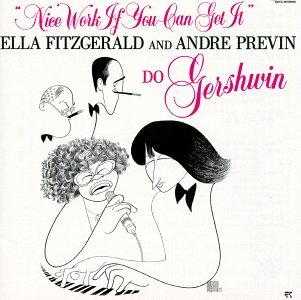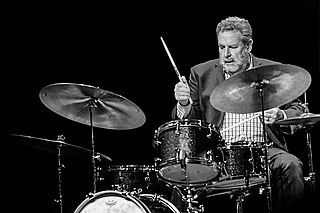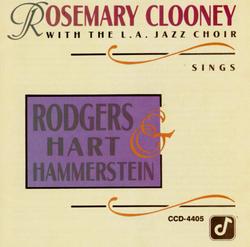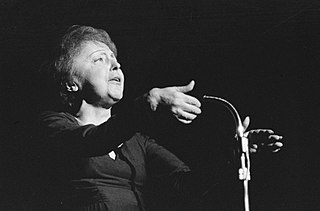
Nice Work If You Can Get It is a 1983 studio album by Ella Fitzgerald and André Previn, with accompaniment from the double bassist Niels-Henning Ørsted Pedersen.

Ella Fitzgerald Sings the George and Ira Gershwin Song Book is a box set by American jazz singer Ella Fitzgerald that contains songs by George and Ira Gershwin with arrangements by Nelson Riddle. Fifty-nine songs were recorded in the span of eight months in 1959.

Jeff Hamilton is an American jazz drummer who is co-leader of the Clayton-Hamilton Jazz Orchestra.
"Isn't It a Pity?" is a song composed by George Gershwin, with lyrics by Ira Gershwin, written for the unsuccessful 1933 musical Pardon My English. It was introduced by George Givot and Josephine Huston.
"Strike Up the Band" is a 1927 song composed by George Gershwin, with lyrics by Ira Gershwin with the collaboration of Millie Raush. It was written for the 1927 musical Strike Up the Band, where it formed part of a satire on war and militaristic music. Although the musical was not successful, the instrumental version of the song, titled the "March from Strike Up the Band", has become quite well known. The song was also used in the Judy Garland-Mickey Rooney 1940 film Strike Up the Band.

Sentimental Journey: The Girl Singer and Her New Big Band is a 2001 album by Rosemary Clooney. This was Clooney's last studio recording.
Singer Rosemary Clooney is known for many songs, including "Come On-a My House", "Botch-a-Me", "Mambo Italiano", "Tenderly", "Half as Much", "Hey There" and "This Ole House". This is a partial discography.

Rosemary Clooney Sings the Music of Cole Porter is a 1982 album by Rosemary Clooney, of songs by Cole Porter.

Rosemary Clooney Sings the Music of Irving Berlin is a 1984 album by Rosemary Clooney, of songs composed by Irving Berlin and released on Concord Jazz label.

Everything's Coming Up Rosie is a 1977 studio album by the American jazz singer Rosemary Clooney. It was the first solo album that Clooney released on Concord Records, and Clooney saw it as her marking her return to recording since her nervous breakdown in 1968, precipitated by the assassination of Robert F. Kennedy. The title is a reference to the 1959 song "Everything's Coming up Roses". Clooney would record a further twenty five albums for Concord, with her last being released a year before her death in 2002.

Rosemary Clooney Sings the Music of Jimmy Van Heusen is a 1986 album by Rosemary Clooney, of songs composed by Jimmy Van Heusen.

Show Tunes is a 1989 album by Rosemary Clooney, of show tunes.

Rosemary Clooney Sings Rodgers, Hart & Hammerstein is a 1990 album by Rosemary Clooney, of songs composed by Richard Rodgers, with lyrics by Lorenz Hart, and Oscar Hammerstein II.

At Long Last is a 1998 studio album by Rosemary Clooney, accompanied by the Count Basie Orchestra.

Thanks for Nothing is a 1964 studio album by American jazz singer Rosemary Clooney.

Rosie Swings Softly is a 1960 studio album by Rosemary Clooney, recorded originally by MGM Records.
Pure Gershwin is a 1987 album by American vocalist Michael Feinstein of songs composed by George Gershwin. This was Feinstein's debut studio recording.

Nice Work If You Can Get It: Songs by the Gershwins is a 1996 album by American vocalist Michael Feinstein of songs composed by George Gershwin. It was Feinstein's second album of Gershwin's music, following Pure Gershwin (1987) and preceding Michael & George: Feinstein Sings Gershwin (1998).

The Last Concert is a live album by Rosemary Clooney, released through Concord Jazz in November 2002.






















